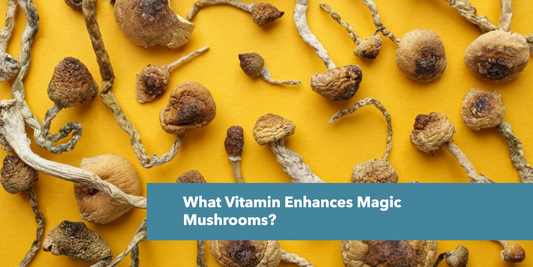Psilocybin, found in magic mushrooms, shows promise in treating PTSD by interacting with serotonin receptors in the brain. This interaction can lead to altered perceptions and emotional states, facilitating therapeutic experiences. Research indicates that psilocybin may help individuals process traumatic memories and emotions more effectively, offering a potential new approach to PTSD treatment.
How do magic mushrooms affect PTSD?
Psilocybin is believed to help the brain adapt and reorganize itself. Studies show that it can promote the growth of new neurons and connections in the hippocampus, which is important for memory and emotion regulation. This growth may help the brain reduce fear responses, often a problem in PTSD patients.
Unlike traditional antidepressants, psilocybin interacts with serotonin receptors in a unique way, leading to more significant changes in mood and thinking. It creates a state of mental flexibility, allowing individuals to change their thought patterns and emotional responses, making therapy more effective.
Research Findings
Recent studies show that psilocybin can help reduce PTSD symptoms. For example, a study found that mice treated with psilocybin had much better fear reduction compared to untreated mice, suggesting it might help people overcome traumatic memories. Additionally, the FDA has labeled psilocybin as a "breakthrough therapy" for depression that doesn't respond to other treatments, which often occurs with PTSD, highlighting its potential for therapy.
Is Magic Mushroom safe to use for PTSD?
The safety of using magic mushrooms for PTSD treatment is still being studied. While early research shows promising results, psilocybin can cause intense psychological experiences, which may not be suitable for everyone. It is important to use psilocybin under medical supervision in a controlled setting to minimize potential risks. More research is needed to fully understand its safety and effectiveness in treating PTSD.
Early studies indicate psilocybin can be safely administered in micro doses (10-25mg) with no short-term negative side effects in healthy people. However, the risk of experiencing a "bad trip" characterized by anxiety and distress remains a concern, especially for vulnerable PTSD patients.
What are the Benefits of the Magic Mushrooms on PTSD?
The potential benefits for individuals with PTSD. Including helping with trauma, reducing anxiety and depression, increasing self-awareness, and helping with the growth of new neurons in your brain.
Helps Overcome Fear: Psilocybin can help people learn to separate harmless situations from their traumatic memories, reducing fear and anxiety.
Supports Brain Health: Studies suggest that psilocybin can enhance neuroplasticity Psilocybin may promote the growth of new brain cells and connections, which can help improve emotional processing and memory.
Improves Therapy Results: When used alongside therapy, psilocybin can help patients feel more open and willing to discuss their traumatic experiences, leading to better outcomes.
Recognized as Promising: The FDA has labeled psilocybin as a "breakthrough therapy" for treatment-resistant depression, which often occurs with PTSD, highlighting its potential as a treatment option.
Are there any studies on the use of magic mushrooms for anxiety relief?
Yes, there are several studies investigating the potential use of magic mushrooms, specifically the compound psilocybin, for treating Post-Traumatic Stress Disorder (PTSD):
A Health Canada-approved clinical trial is underway in London, Ontario, seeking 20 participants diagnosed with PTSD to undergo psilocybin-assisted therapy. The trial aims to explore the safety and efficacy of this approach.
Researchers from China found that psilocybin can restore fear extinction and help treat PTSD by promoting the growth of new neurons and synapses in the hippocampus, a brain region involved in memory formation. Psilocybin-treated mice exhibited significantly improved fear extinction compared to untreated controls.
A small-scale study by experts at the Institute of Psychiatry, Psychology & Neuroscience at King's College London found that small doses of psilocybin (10mg or 25mg) do not have short-term or long-term negative side effects in healthy people. The authors believe this could be a first step in proving the safety and feasibility of psilocybin as a treatment for mental health conditions like PTSD and depression.
The U.S. Food and Drug Administration (FDA) has designated psilocybin as a "breakthrough therapy" for treatment-resistant depression, which often co-occurs with PTSD. Multiple studies have shown that psilocybin promotes neuronal growth and the formation of new synapses, which could explain its potential antidepressant and PTSD-alleviating effects.
What are the potential side effects of using magic mushrooms for anxiety?
The potential side effects of using magic mushrooms for PTSD include Psychological Distress, bad Trips, Visual Disturbances, Agitation Confusion, and risk of poisoning.
Potential Side Effects of Magic Mushrooms for PTSD
Using magic mushrooms (psilocybin) for PTSD can have some side effects, including:
Psychological Distress: Some people may feel very anxious or confused during the experience, especially if they have existing mental health issues.
Bad Trips: A "bad trip" can happen, leading to feelings of panic, fear, or despair that can last for hours.
Visual Disturbances: Some users might experience ongoing visual changes or flashbacks long after the effects have worn off. This is a rare condition called HPPD.
Agitation and Confusion: Individuals may feel restless, confused, or disoriented during and after the experience.
Risk of Poisoning: There is a small chance of accidentally consuming poisonous mushrooms that look similar to psilocybin mushrooms, which can cause serious symptoms.
Tolerance: While psilocybin is not addictive, using it frequently can lead to tolerance, meaning higher doses may be needed to feel the same effects.
How do magic mushrooms compare to other treatments for PTSD?
Magic mushrooms show promise as a treatment for PTSD, potentially offering benefits that traditional therapies may not provide. While psilocybin has fewer side effects and can lead to significant improvements in a shorter time, more research is needed to fully understand its long-term effects and safety. As interest in psychedelic treatments grows, ongoing studies will help clarify how they can complement or enhance existing treatment options for PTSD.




